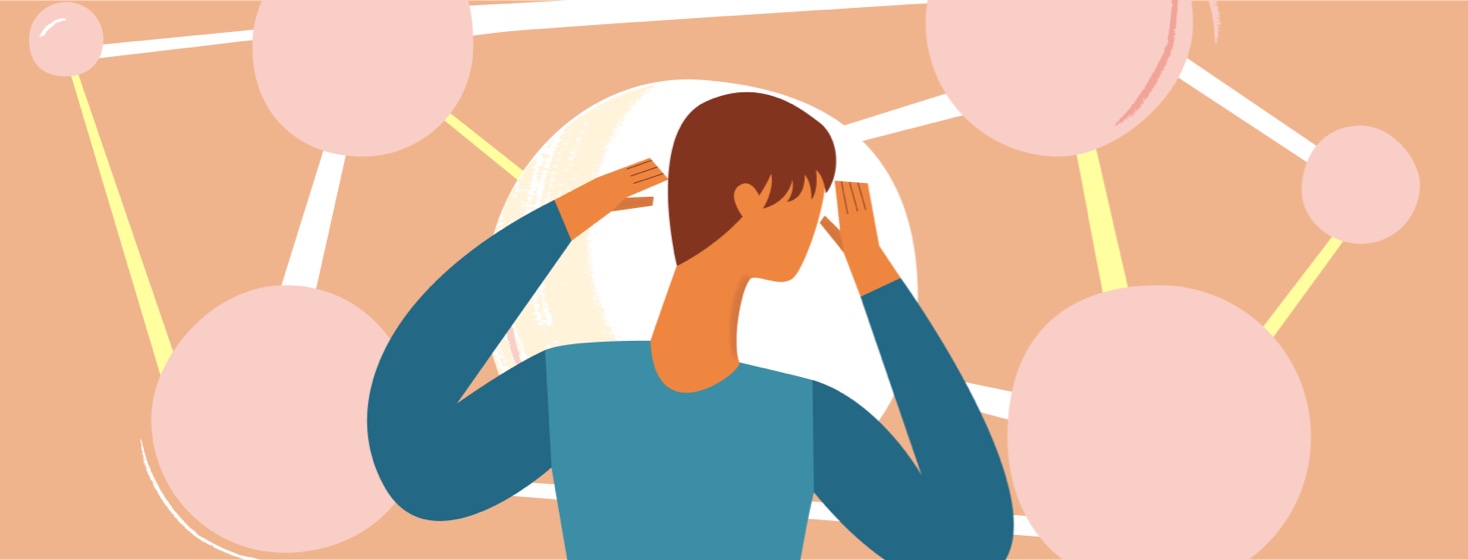What is the PTEN Mutation?
Last fall, after a couple of scans and one excruciatingly awful biopsy, I learned that my breast cancer had come back to my sternum (specifically, the manubrium). I initially had stage 1b breast cancer in 2010, and 10 years later, I am now stage 4.
PTEN, the gene you've never heard of
Two years prior to my stage 4 diagnosis, I had gone back to the genetic counselor at my hospital’s cancer center. The second round of genetic counseling confirmed that I had a mutation of the PTEN gene. In other words, I have Cowden’s Syndrome. What that meant was that my early-stage breast cancer and thyroid cancer, and a whole host of other cysts and benign tumors, had all been caused by this faulty gene of mine.
If you haven’t heard of Cowden’s Syndrome or the PTEN gene, congratulations. You are not alone. In fact, most medical professionals I have encountered since my diagnosis have never heard of this mutation. Alternatively, I am either the second or third patient in the history of their career with a confirmed PTEN mutation.
What is Cowden’s Syndrome?
Cowden's Syndrome is an inherited condition where there are a lot of growths, called harmatomas, which are usually benign (not cancer). People with Cowden syndrome have an increased risk of developing certain types of cancer, including:1
- Melanoma
- Breast
- Thyroid
- Endometrium
- Kidney
- Colon
- Rectum
Cowden syndrome is usually caused by mutations or changes in the PTEN gene.1
Most of what is summarized in the paragraph above applies to me. My mother died of metastatic breast cancer in 1987 at the age of 40 years old. My medical history has pretty much mirrored all that she went through, down to the metastatic breast cancer diagnosis. The geneticist believes that I inherited this from my mother, but obviously, we cannot confirm that since she has been gone for more than 30 years.
Tumor suppressor gene
When I have to explain Cowden’s Syndrome in the simplest term, I usually say, "I have a PTEN mutation. It’s a tumor suppressor gene, and mine doesn’t work." Imagine that the PTEN gene is like a bouncer at the bar, preventing unsavory elements from gaining entrance. Well, my bouncer is drunk and asleep at the job.
I had three cysts removed from my tiny baby self when I was 6 months old: one, on the top of my head, one on my back, and one in my crotch area. This mutation has been here since the beginning, and it’s going to see me through to the end.
As horrifyingly frightening as it was to learn I had this mutation, this diagnosis also gave me a strange sense of peace. I know why I keep getting cysts and tumors. When the oncologist broke the news that my cancer was now in my sternum, it was devastating and absolutely life-changing.
One thing that it wasn’t though – a surprise. The oncologist ordered a genomic test on the area biopsied from my sternum, and it showed evidence of the PTEN mutation. This was always going to happen to me, and I did everything I could 10 years ago to keep it from happening. However, how do you fight your DNA?
You don’t. You just deal with the hand you are dealt, and these are my cards.

Join the conversation